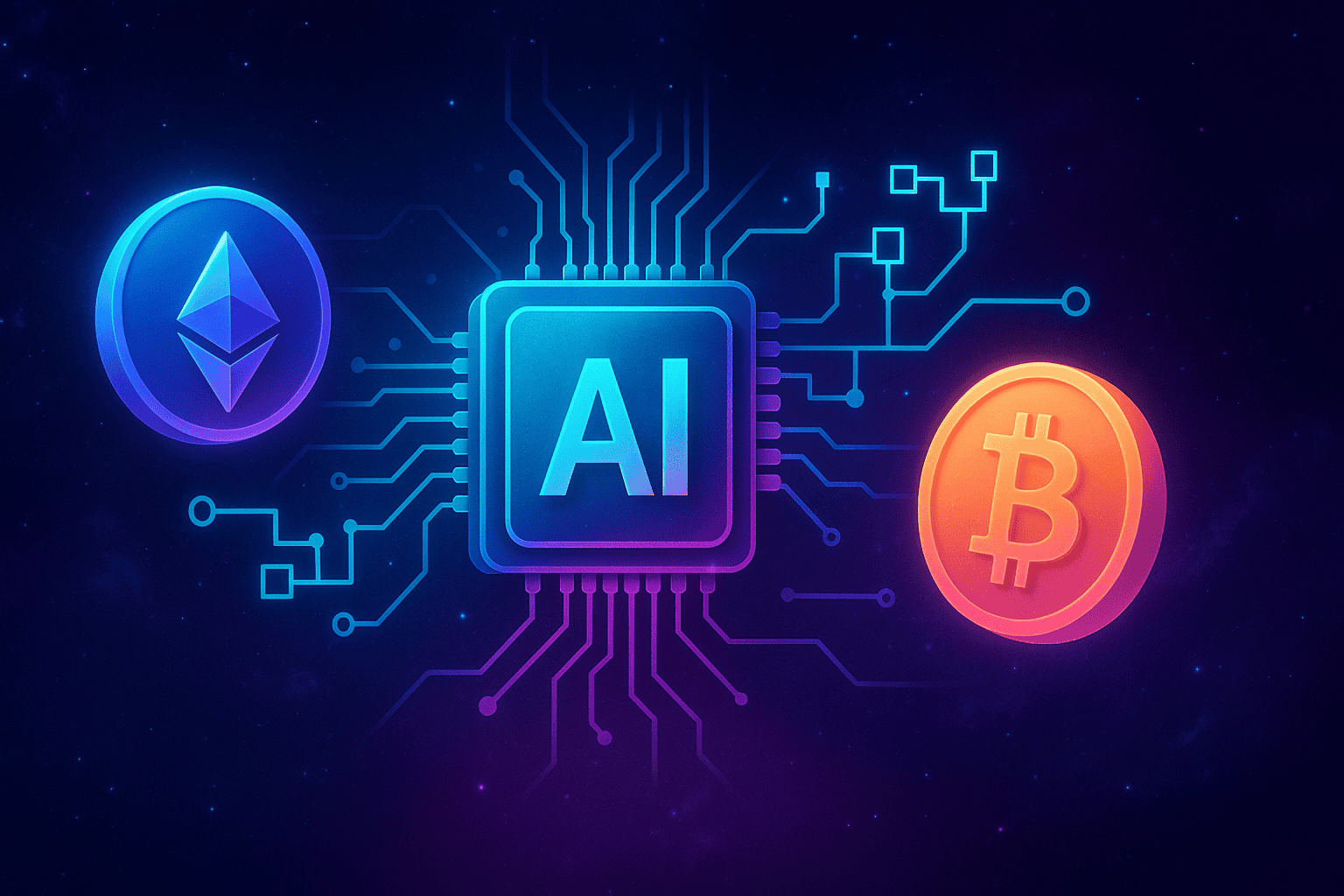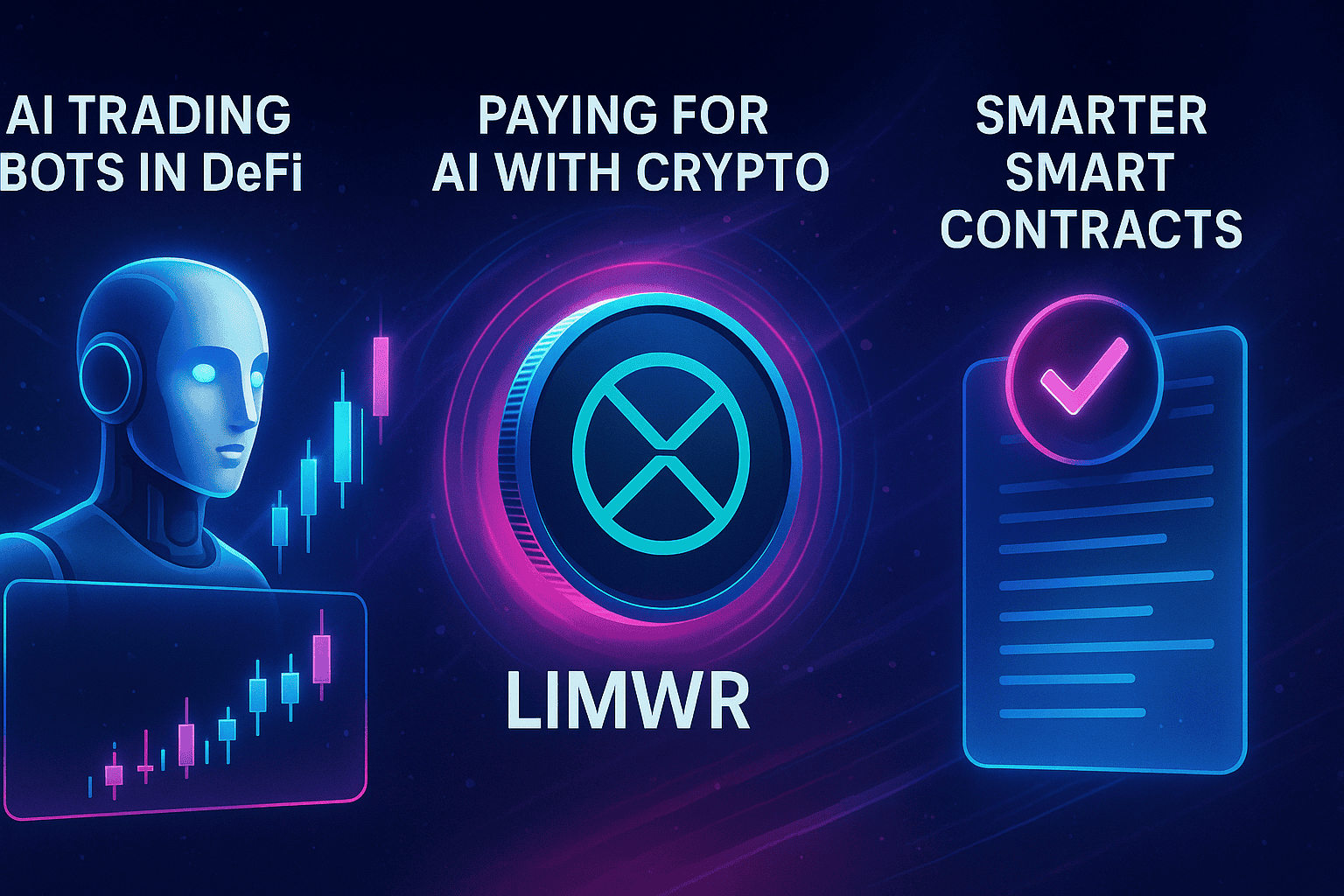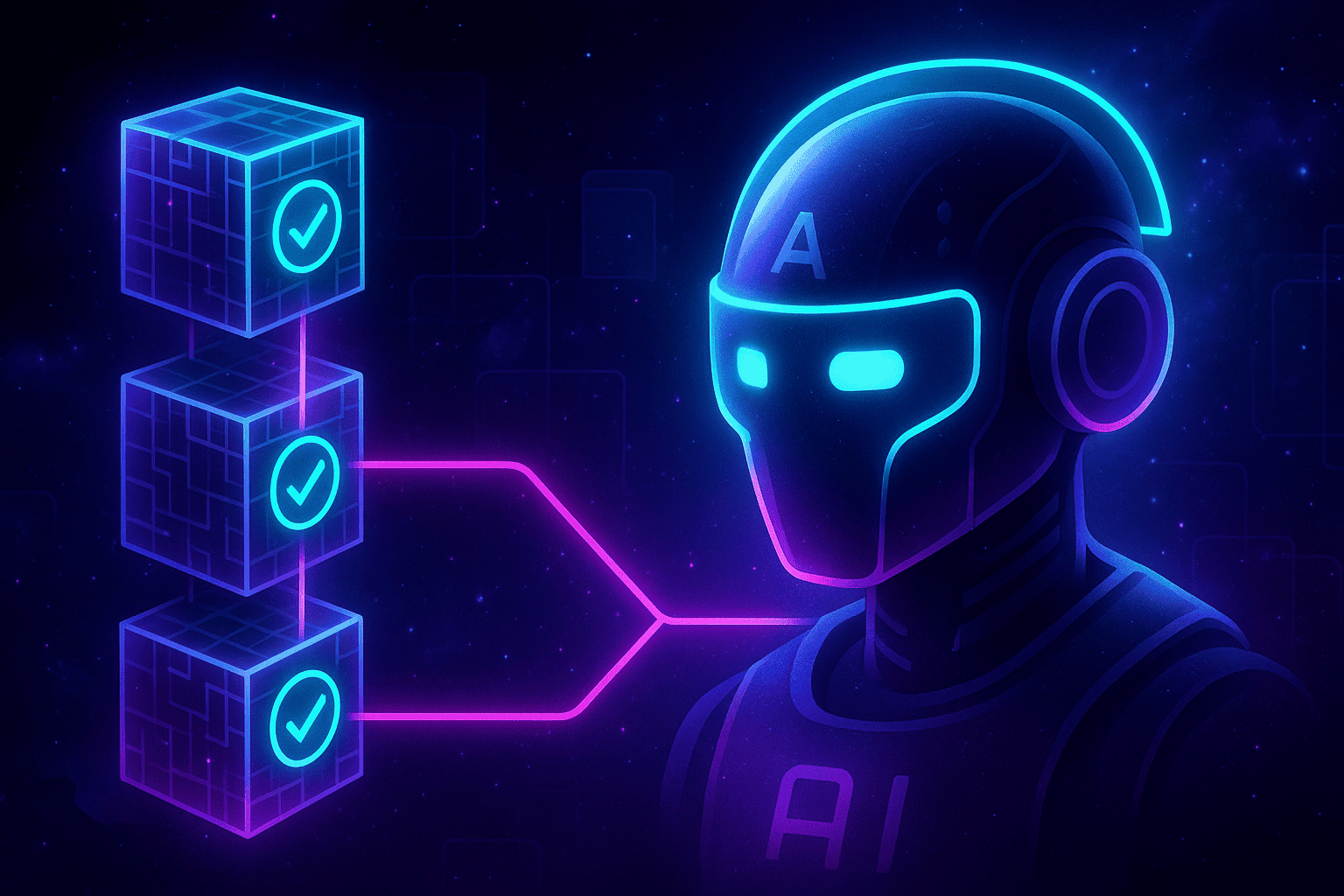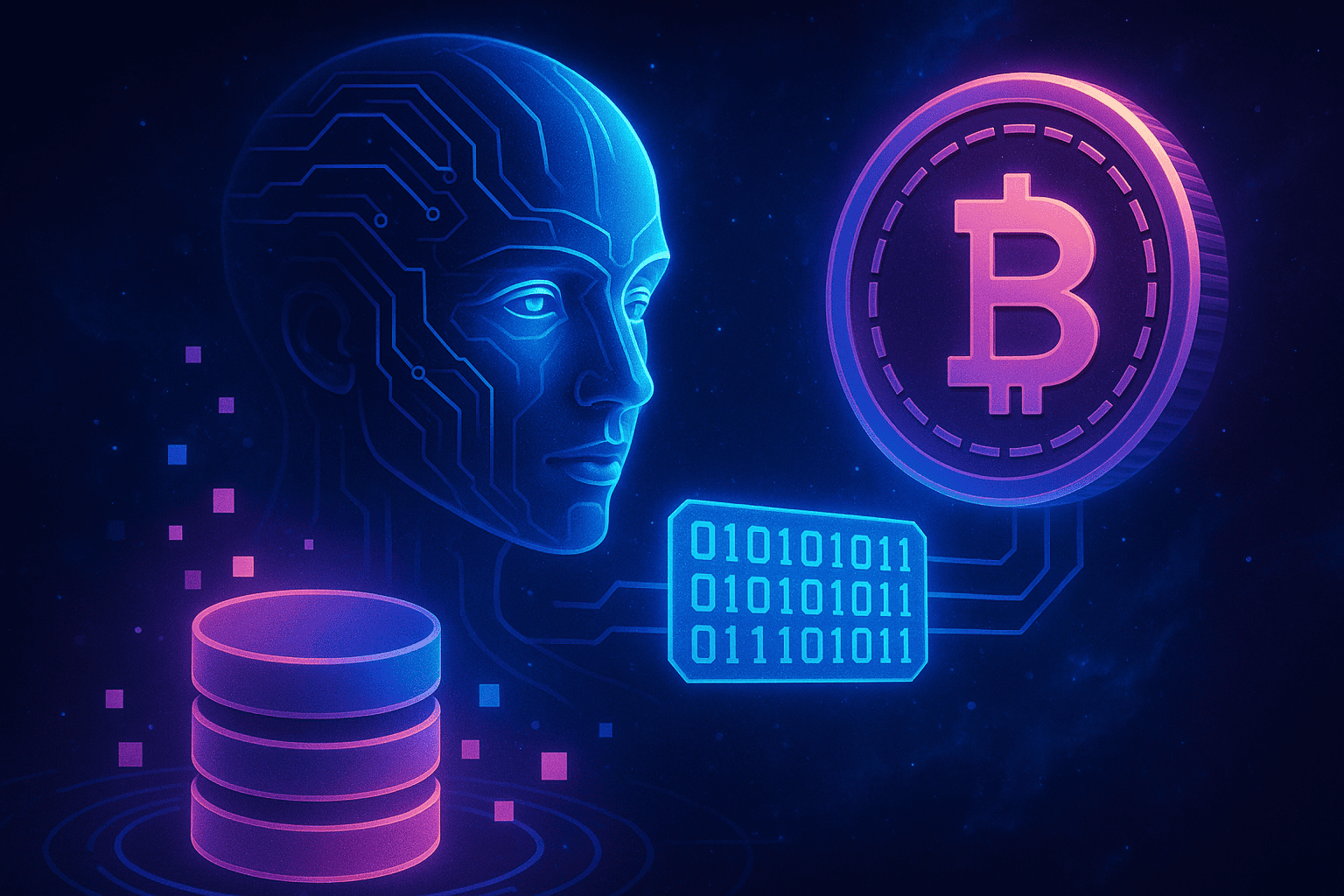As AI systems start acting on their own, buying data, paying for compute, or managing assets – they need an economic infrastructure that works without human oversight. Not just any system will do. It must be borderless, autonomous, and transparent by design.
This is exactly what crypto was built for. Well blockchain really, but crypto as the payment system. Ethereum, Solana, and other blockchain networks offer the core features that an AI economy requires.
Let’s take a look at why crypto isn’t just compatible with AI, it’s the natural and obvious choice.
AI needs an economy (obviously right?)

Autonomous AI systems already perform tasks, generate content, and make decisions. But to truly function independently, they need the ability to pay for services, interact with other agents, and manage digital assets without relying on traditional financial systems.
Crypto networks provide the tools to make that possible.
Why crypto fits AI
AI and crypto share common design goals: decentralization, automation, and transparency. Together, they reinforce each other.
- Autonomy: AI agents can hold their own wallets and sign transactions -no human account needed.
- Transparency: Every action on-chain is verifiable, which makes AI decisions traceable.
- Automation: Smart contracts let AI execute deals and interact with systems autonomously.
- Global access: Crypto networks never close. They’re available to any AI system, anywhere, 24/7.
Real-world use cases

AI in DeFi
AI-powered trading bots are already active in DeFi. These agents adjust portfolios in real time, search for better yields, and react instantly to market conditions.
- Rebalance portfolios automatically
- Move assets to stablecoins during volatility
- Find better returns in staking or lending pools
Platforms like Griffain are helping users deploy AI to manage on-chain finance smarter.
Paying for AI services with tokens
You can already use crypto to access AI tools. LimeWire, for example, lets users pay for image generation and content creation with its LMWR token. Creators are rewarded directly without middlemen.
AI-enhanced smart contracts
Smart contracts are programmable, but fixed. AI agents can make them adaptive by using real-time data to update how contracts behave based on risk, price or market trends.
Trust, data, and integrity

Blockchain solves AI’s trust issues
AI systems are often criticized for their opacity. We don’t always know how they make decisions. Blockchains offer tamper-proof logs and full audit trails:
- Track the source of training data
- Log decision-making processes
- Ensure compliance with regulation
Projects like Ocean Protocol are building data marketplaces that are both transparent and fair.
Better data means better AI

High-quality data is essential for training reliable AI models—but it’s hard to source. Crypto networks help solve this by:
- Proving data hasn’t been tampered with
- Letting contributors earn tokens for sharing data
- Preserving ownership over personal or sensitive information
Democratizing AI compute
Training AI models is expensive. Most of the world’s GPU power is owned by large tech companies. Decentralized compute networks like Akash and Render Network open that up.
By renting idle GPU capacity in exchange for crypto, these networks lower the barrier for small teams and independent developers.
How AI helps crypto back
- Spotting fraud in blockchain transactions
- Generating smart contracts from natural language prompts
- Supporting DAOs with voting, analytics, and governance tools
Privacy and identity
AI and crypto also combine to protect privacy in new ways:
- Fully Homomorphic Encryption (FHE) lets AI process encrypted data without ever decrypting it
- Zero-knowledge proofs let users prove something without revealing sensitive data
Worldcoin combines these technologies to verify identity while preserving anonymity.
New income streams: GPUs and data
- Rent out unused GPUs and get paid
- Contribute training data and earn tokens
- Validate AI outputs and receive crypto rewards
According to Decentralised.co, up to 85% of global GPU power sits unused. These networks unlock it.
What comes next?
- AI agents managing entire DeFi portfolios
- AI tools built specifically for on-chain tasks like audits and forecasting
- Token-based income for developers who deploy useful AI models
Conclusion: Crypto is the foundation of AI’s economy
AI systems need an economy they can participate in. One that is autonomous, programmable, verifiable, and borderless. Crypto provides exactly that. Ethereum and Solana are already leading the way, with ecosystems built to support fast, secure and decentralized value exchange.
As AI evolves, it won’t just use crypto—it will rely on it. Together, they form the infrastructure for the next digital economy.
